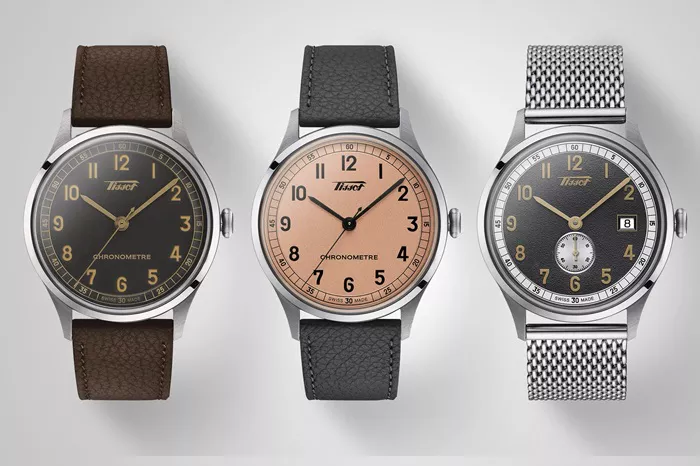When discussing watch brands, the term “luxury” often conjures up images of elegance, precision, and a sense of exclusivity. Names like Rolex, Patek Philippe, and Cartier are universally recognized as luxury watchmakers, but what about Mathey-Tissot? Does this brand belong in the same category? To answer this question, we need to delve into the origins of Mathey-Tissot, its evolution over time, its current offerings, and how it is perceived by both consumers and industry experts.
Origins and Evolution: A Brand with a Rich History
Mathey-Tissot, often referred to simply as Mathey or Tissot in various markets, is a watch brand that traces its roots back to the heart of watchmaking excellence: Switzerland. However, the journey of Mathey-Tissot is not a straightforward one. While the Tissot name is synonymous with Swiss watchmaking, the inclusion of “Mathey” in the brand’s name introduces a layer of complexity.
The origins of Mathey-Tissot can be traced to the late 19th century when the Mathey family, who were already established in the watchmaking industry, merged with the Tissot family. This merger combined two families with a shared passion for creating high-quality watches. The resulting brand, Mathey-Tissot, was well-positioned to capitalize on the growing demand for precision timepieces.
Through the 20th century, Mathey-Tissot continued to evolve. The brand was known for its innovative designs and use of high-quality materials. However, like many Swiss watch brands, Mathey-Tissot faced challenges in the latter half of the 20th century due to the quartz crisis. This period saw a shift in consumer preferences towards cheaper, quartz-powered watches, which threatened the traditional Swiss watchmaking industry.
To survive, many Swiss brands, including Mathey-Tissot, diversified their offerings and began producing quartz watches. While this move helped the brand stay afloat, it also marked a shift away from the exclusive, high-end market that had been its traditional domain.
In the early 21st century, Mathey-Tissot underwent another significant change. The brand was acquired by a foreign company and its focus shifted towards producing affordable, yet stylish, watches for the mass market. This acquisition and subsequent shift in focus have raised questions about whether Mathey-Tissot can still be considered a luxury brand.
Current Offerings: A Mix of Tradition and Modernity
Despite its changing fortunes, Mathey-Tissot continues to offer a range of watches that cater to different consumer needs. The brand’s current offerings include both quartz and mechanical watches, with designs that range from classic and elegant to sporty and modern.
One of the defining features of Mathey-Tissot watches is their attention to detail and use of high-quality materials. The brand’s watches are crafted using stainless steel, sapphire crystal, and other materials that are known for their durability and beauty. Many of the watches also feature Swiss-made movements, which are renowned for their precision and reliability.
In addition to their technical specifications, Mathey-Tissot watches are also known for their stylish designs. The brand’s watches come in a variety of styles, from sleek and minimalist to ornate and decorative. This diversity allows consumers to choose a watch that reflects their personal style and preferences.
However, it is worth noting that while Mathey-Tissot’s watches are well-made and stylish, they are not priced in the same league as other luxury watch brands. Instead, the brand has positioned itself as a more affordable option for consumers who want a high-quality watch without breaking the bank.
Perceptions: A Brand with a Complex Identity
The question of whether Mathey-Tissot is a luxury brand is not one that can be answered definitively. Instead, it depends on how one defines “luxury” and what one expects from a luxury watch brand.
For some consumers, luxury is synonymous with exclusivity and a sense of being part of an elite group. In this sense, Mathey-Tissot may not be considered a luxury brand, as its watches are available to a wider range of consumers and are not priced in the same league as other luxury watchmakers.
However, for other consumers, luxury is more about the quality of the product and the sense of pride and satisfaction that comes from owning a well-made, stylish watch. In this sense, Mathey-Tissot can be considered a luxury brand, as its watches are crafted using high-quality materials and are designed to last.
Industry experts also have mixed opinions on whether Mathey-Tissot is a luxury brand. Some argue that the brand’s history and tradition, combined with its commitment to high-quality craftsmanship, make it a worthy contender in the luxury watch market. Others, however, point to the brand’s more affordable pricing and mass-market appeal as evidence that it has moved away from its luxury roots.
Conclusion: A Brand with a Unique Place in the Watchmaking World
Whether Mathey-Tissot is a luxury brand depends on one’s definition of luxury and expectations of a luxury watch brand. The brand has a rich history and tradition of craftsmanship, which has been maintained to this day. However, its pricing and mass-market appeal have shifted it away from the exclusive, high-end market that is typically associated with luxury watch brands.
Despite this, Mathey-Tissot continues to offer a range of well-made, stylish watches that cater to different consumer needs. Whether one considers it a luxury brand or not, there is no denying that Mathey-Tissot holds a unique place in the world of watchmaking. Its commitment to high-quality craftsmanship, innovative designs, and affordable pricing have made it a popular choice for consumers who want a stylish and reliable watch without breaking the bank.
As the watchmaking industry continues to evolve, it remains to be seen how Mathey-Tissot will position itself in the market. Will it continue to focus on affordable, stylish watches for the mass market, or will it try to reclaim its place in the luxury watch market? Whatever the future holds, one thing is certain: Mathey-Tissot will continue to be a respected and well-known name in the world of watchmaking.
Related Topic:

